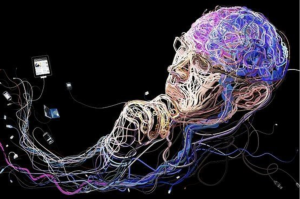To ALL of my fellow Friends & Colleagues: Happy Father’s Day!
In honor of this special day (& this blog), I did a search for: “Father of the Internet”. Of course, IF you polled most people <today>, they would say Steve Jobs, Steve Wozniak, Bill Gates or even Mark Zuckerberg. Well – we all know those are wrong, but I was surprised with who………..AND WHY?
Have you ever wondered how long it took to create the internet or who is considered the Father of the Internet? When we think of the internet, we think of requests disappearing into “a cloud”, where a response usually is returned. But the idea was just beginning in the 1960s. J.C.R. Licklider of MIT was the first person to float the idea of networked computers that could be used to share data over a distance. By 1965, a computer at MIT in Massachusetts was able to connect to a computer at Stanford in California. And, the precursor to the internet took form.
Who Is the Father of the Internet?
Vint Cerf, born June 23, 1943, designed the TCP/IP protocols and the internet architecture with his co-designer
Robert E. Kahn. Known as the “Father of the Internet”, Cerf began work at the United States Department of Defense Advanced Research Projects Agency (DARPA) in 1973 at the request of Kahn.
Who Invented the Internet?
No ONE(1) person invented the internet. From Licklider’s idea to Cerf’s protocols, the internet developed from two computers in 1965 to a global network of 4.4 billion users in 2020 with the help of hundreds of people. Aside from Cerf and Kahn, some better-known participants include:
- Leonard Kleinrock. He developed the theory of packet-switching in the early 1960s, which involved sending data between two points on a network.
- Larry Roberts. Using Kleinrock’s theory, Roberts designed the Department of Defense’s ARPANET network, which become the foundation of the internet of today.
- Raymond Tomlinson. Can you imagine life without email? Tomlinson is credited with sending the first email via ARPANET in 1971. Further, he went on to develop standards for email messages, to design ways to organize emails on a user’s computer, and to create tools for writing and reading emails.
- Paul Mockapetris and John Postel. You can thank these two gentlemen for domain names. Without their system of using names, we would have to remember the actual TCP/IP address of every site we visited. In 1985, the first domain name was assigned.
- Barry Shein. The internet began as a communications network for governments, universities, and corporations involved in government-funded projects. In 1989, Shein became the first internet service provider to allow dial-up access to the internet for a charge of $20 per month.
- Sir Tim Berners-Lee. Berners-Lee created HTML in 1990. Next, he went on to develop the first website in 1991, which initiated the World Wide Web as we know it.
- Marc Andersen and Eric Bina. As students at the University of Illinois, these two men released the first web browser called Mosaic in 1993. Then, they went on to found Netscape.
Through their contributions, these men changed the world.
Why Create the Internet?
After World War II, governments began to contract with private corporations and universities for research. Although
the primary focus was on defense research, other agencies such as the Department of Energy contracted with the  private sector for research projects. Because these researchers had no way to share information in a timely fashion, efforts were sometimes duplicated, or the results were incompatible. These challenges resulted in delays and increased costs.
private sector for research projects. Because these researchers had no way to share information in a timely fashion, efforts were sometimes duplicated, or the results were incompatible. These challenges resulted in delays and increased costs.
ARPANET was designed to address the problem of resource sharing. In the beginning, file transfers (FTP) and remote login (Telnet) shared information or access devices. When a system for sending and receiving messages via email became available, the methods for collaboration changed, and the basis for today’s internet began.
There were other applications proposed, such as voice communications and disk sharing; however, the essential concept of ARPANET was the need for an infrastructure that would allow new applications to operate independently of the network hardware. The development of TCP/IP protocols made that independence possible. Eventually, the government-created network led to the World Wide Web.
Evolution of the Internet
The internet has become such an important part of everyday life that some consider it a  human right. Without the internet, people would have difficulty communicating, many employees could not work, and students would face more barriers to learning. New technologies that leverage the internet are exploring the Internet of Things, cloud gaming, artificial intelligence and 5G. No one knows how the internet will evolve. But if the past is any indication, changes will happen at lightning speed.
human right. Without the internet, people would have difficulty communicating, many employees could not work, and students would face more barriers to learning. New technologies that leverage the internet are exploring the Internet of Things, cloud gaming, artificial intelligence and 5G. No one knows how the internet will evolve. But if the past is any indication, changes will happen at lightning speed.

 317-289-4965
317-289-4965